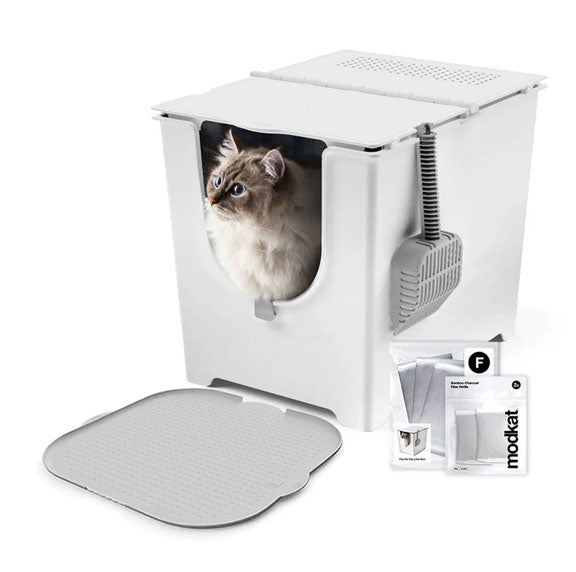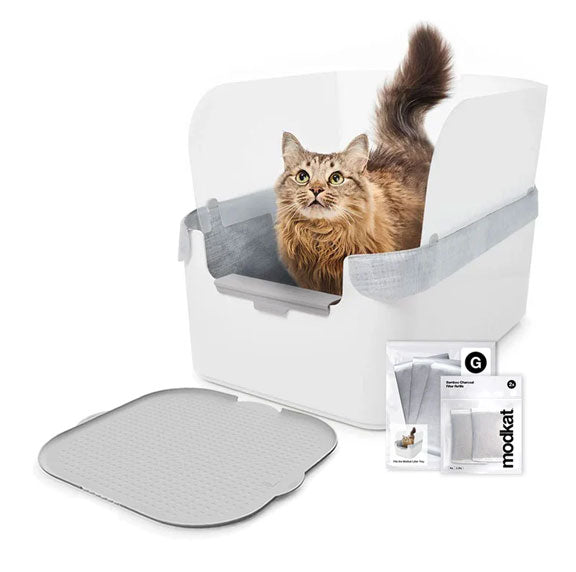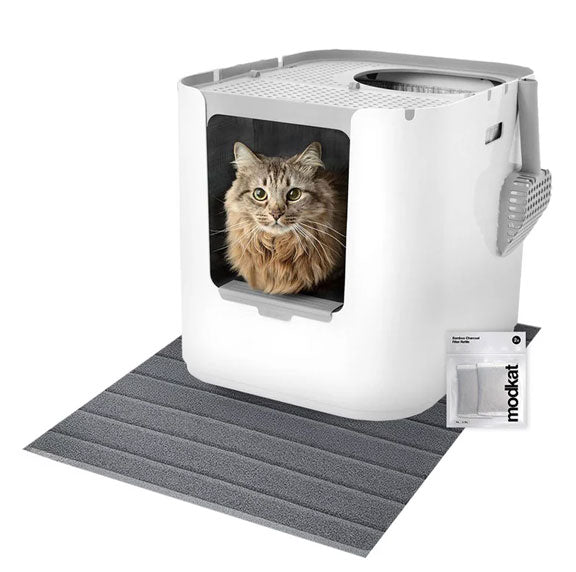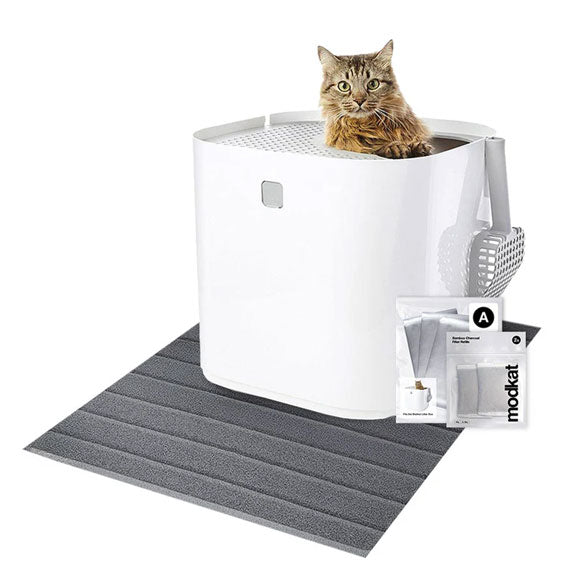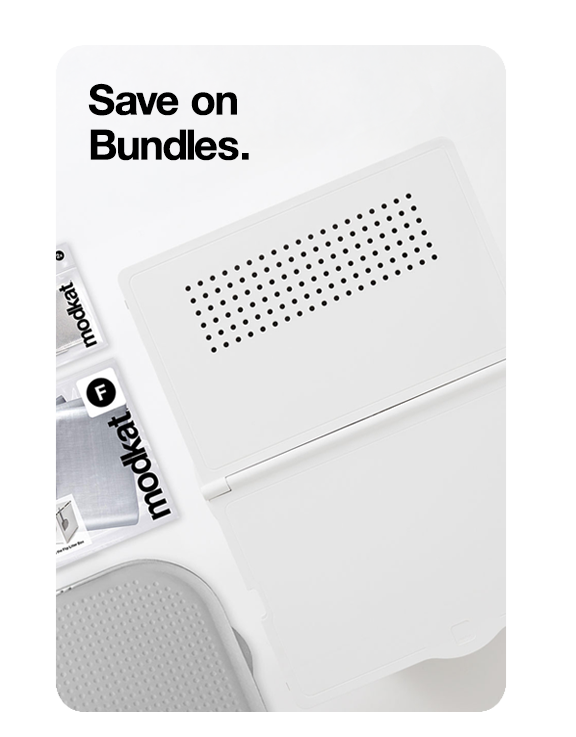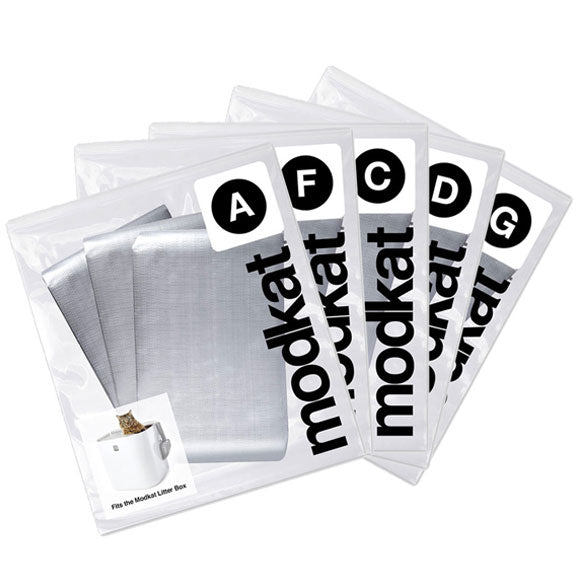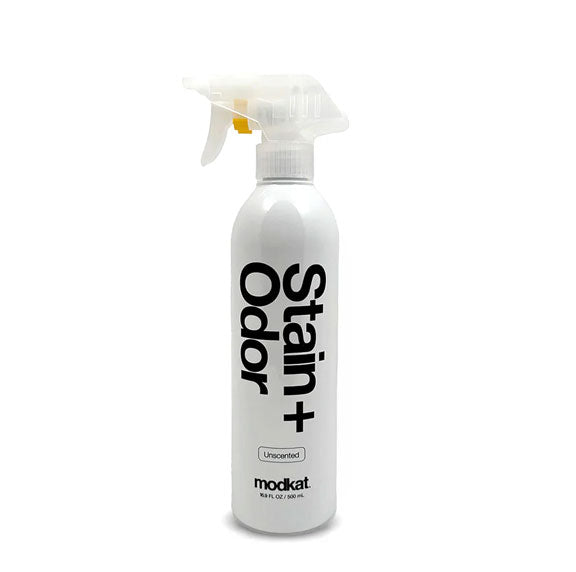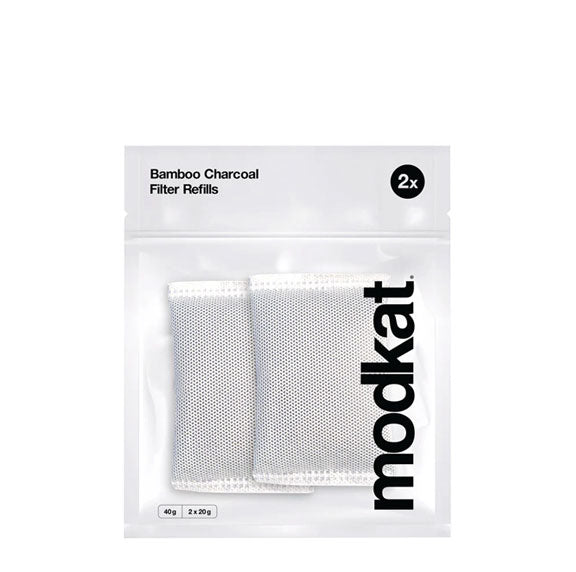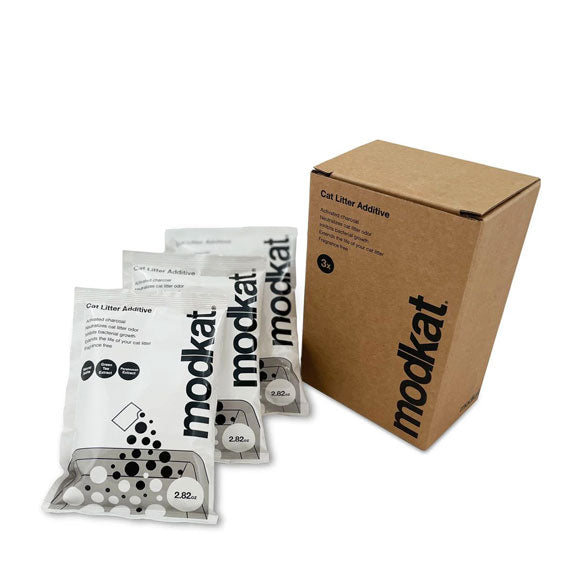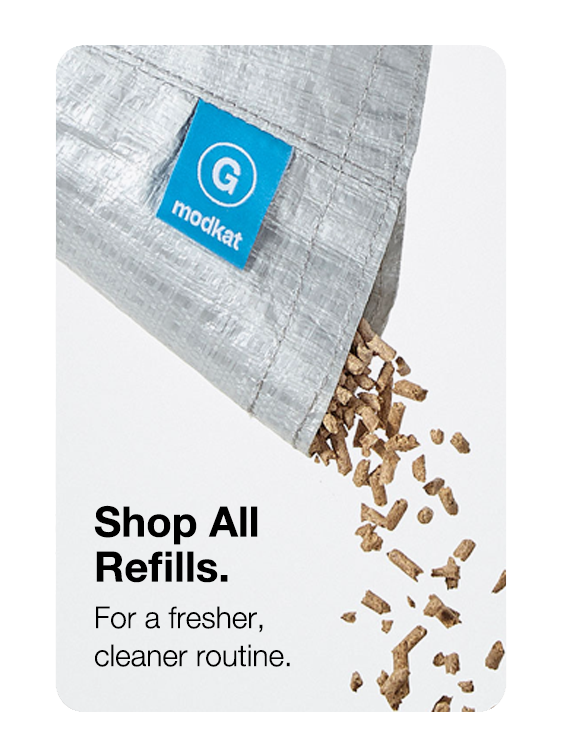Litter Boxes
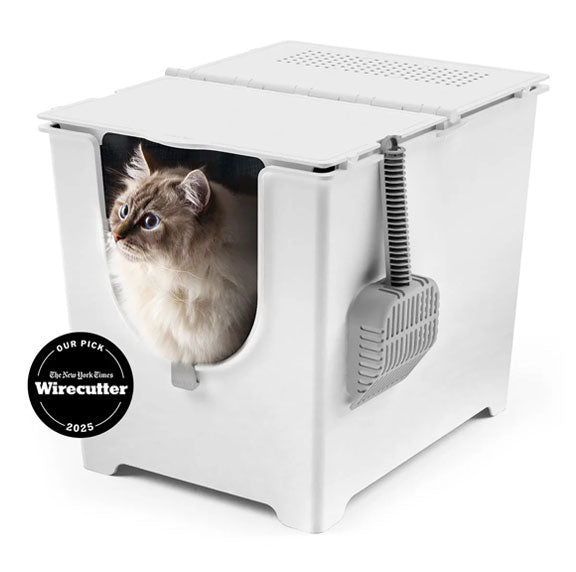
Modkat Flip
Front-Entry Litter Box
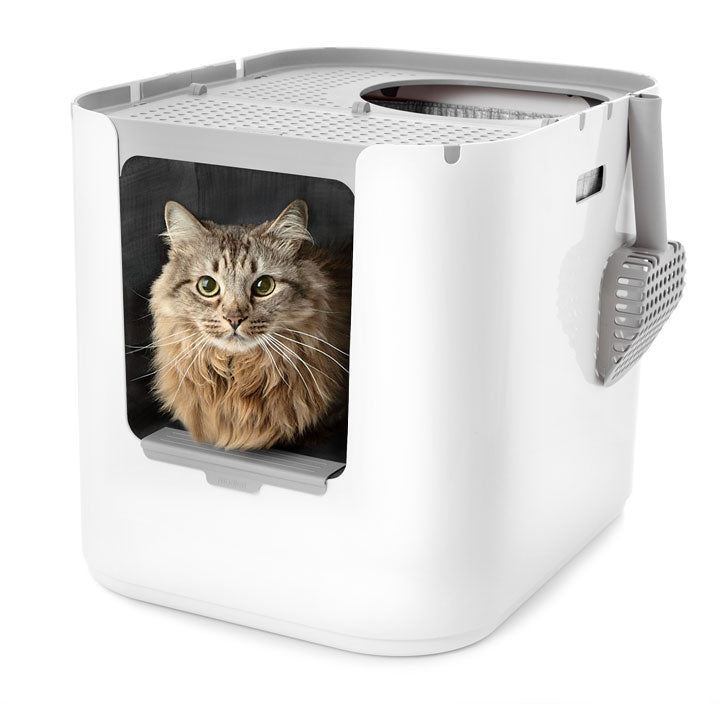
Modkat XL
Front/Top-Entry Litter Box
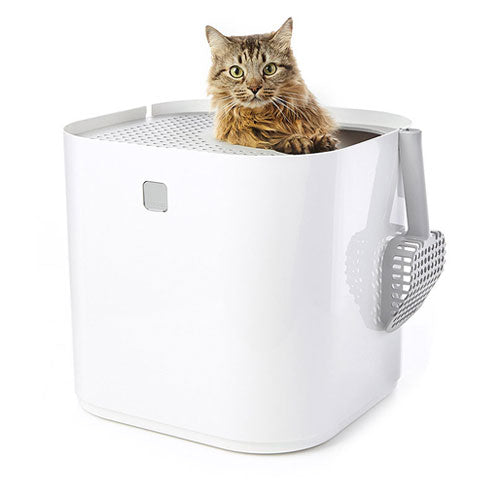
Modkat
Top-Entry Litter Box
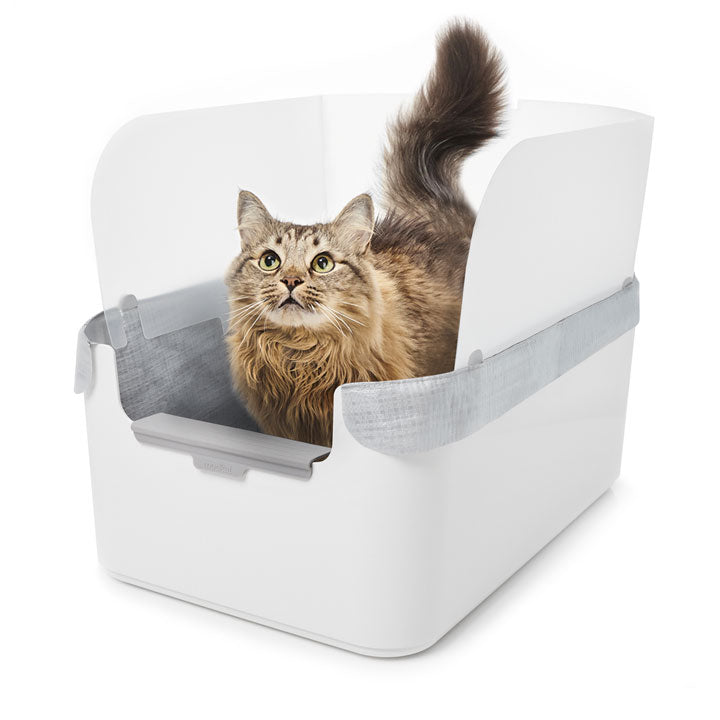
Modkat Tray
Open Litter Box
Starter Kits
Essentials
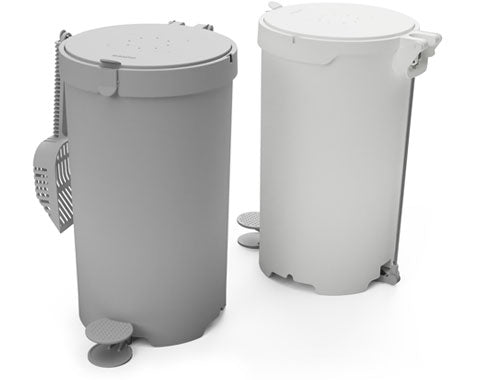
Litter Keeper
Two colors
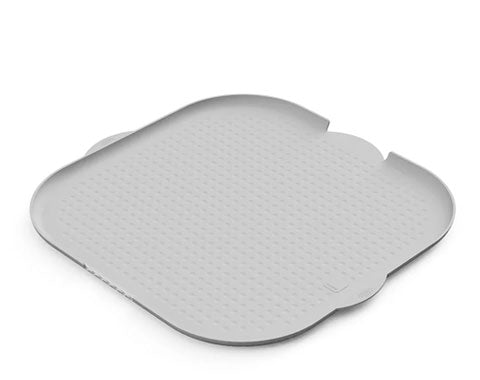
Litter Mats
Multiple styles, colors & sizes
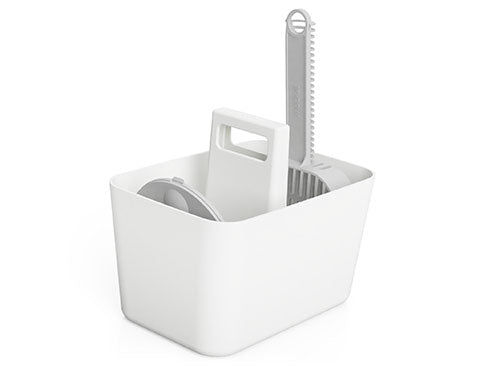
Tidy-Up Kit
Scoop holder & dustpan
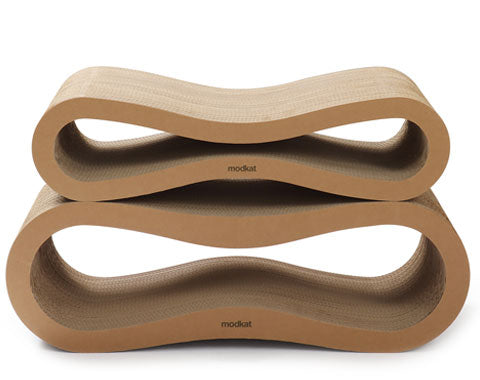
Lounge + Play
Scratchers & toys
Refills
Add description, images, menus and links to your mega menu
A column with no settings can be used as a spacer
Link to your collections, sales and even external links
Add up to five columns
Add description, images, menus and links to your mega menu
A column with no settings can be used as a spacer
Link to your collections, sales and even external links
Add up to five columns
Are bengal cats hypoallergenic?
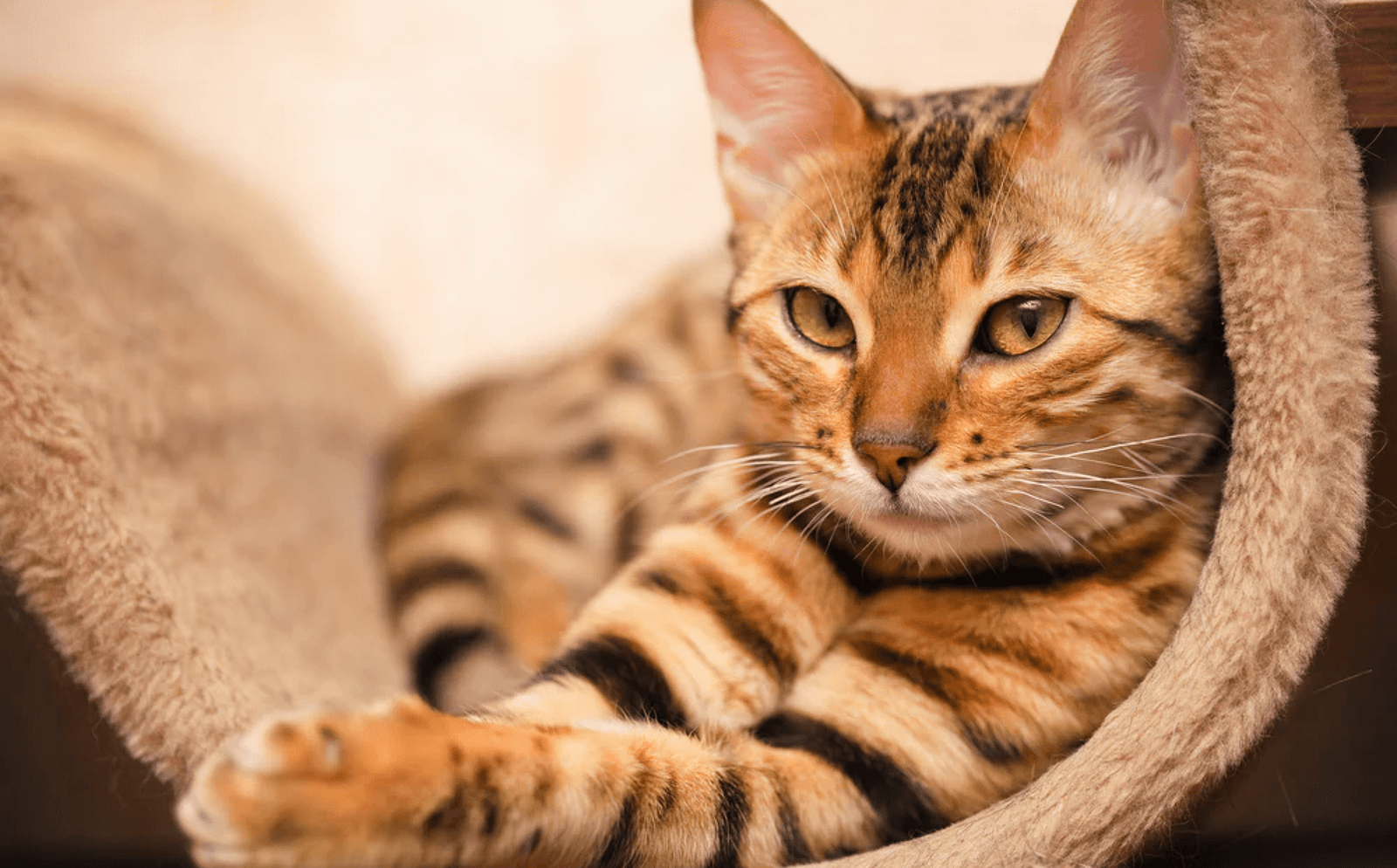
If you love cats but have allergies, you’re not alone. Plenty of pet owners have to suffer through sniffles because they love their furry friends! And many more look into hypoallergenic options so they can love on their feline without triggering their allergies.
If you’ve done any research into hypoallergenic cats, you’ve likely come across information on Bengal cats. But are Bengal cats hypoallergenic? Is any cat breed truly 100% hypoallergenic?
We’re here to answer all your burning questions about hypoallergenic Bengal cats so you can find the perfect feline companion.
What causes cat allergies?
Many people suspect they are allergic to cat hair, but that’s rarely the case. Most cat allergies are actually caused by a protein called Fel d 1 found in the saliva and dander of cats. Scientists don’t know what good things that protein might do for cats, but for many humans, it causes an array of unpleasant symptoms like sneezing, itching, and tearing up.
Cats produce Fel d 1 in their saliva and sebaceous glands. The animals transfer it to their fur and skin when grooming. As the cats shed dander and fur, they leave traces of Fel d 1 in their wake. Cat allergens can also be found in pet bedding and other house areas where cats have been.
How can you prevent cat allergies?
Unfortunately, there is no fool-proof way to prevent an allergic reaction to cats. But there are things you can do to reduce your exposure to allergens. Regularly grooming your cat and washing its bedding will help reduce allergens in the home. Vacuuming frequently and avoiding air fresheners and scented candles can also help.
If you are still looking for a pet, though, you may consider a low-allergen cat. Some cat breeds either produce a minimal amount of the protein or else produce it in diluted strength. These breeds do not cause the same allergic reaction that other cats can generate in pet allergy sufferers.
Do hypoallergenic cats exist?
No cat is truly hypoallergenic. However, certain cat breeds may cause fewer reactions than others.
One cat breed that sometimes makes the list of top hypoallergenic cats is the Bengal. Known for their beautiful coats ranging from tabby-like stripes to shimmery spots, Bengals are highly intelligent and active cats who love to explore and play.
The reason they cause fewer allergies is most likely due to their beautifully marked coats. Bengals got their spots from their close ancestor, the Asian Leopard Cat. These coats are more like pelts than furs. Consequently, Bengals don’t groom much and rarely shed, so they don’t distribute Fel d 1 throughout the home.
Bengals probably produce the same amount of Fel d 1 as other cat breeds, though, so it’s not quite accurate to say they are hypoallergenic.
All about Bengal cats
Bengal cats are a popular cat breed due to their stunning looks and playful personalities. They are easy to train, athletic, and smart. They even love water. And, of course, they’re a low-allergy cat breed.
Do Bengal cats have pleasing personalities?
Bengal cats are unique in the cat world. Their exceptionally high IQs and affectionate personalities give them the social skills usually associated with a dog. Bengals can be kind of quirky, though, For instance, these cats adore water much like wild cats such as tigers do. If you have a fish tank, be careful. Your Bengal may tip it over, trying to reach the fish. He may also try to join you in the shower or bath to get a chance to play with the running faucet.
Since Bengals are so smart, it’s hard to keep them satisfied with an array of traditional cat toys. Your Bengal might abscond with a few of your favorite things to keep himself entertained. These cats are territorial and may fight people or other pets to control “their” property.
Are Bengal cats good pets?
Unique and affectionate, Bengal cats make wonderful companion animals. They are intelligent, active, and playful – a great fit for families looking for an interactive pet.
The biggest barrier to owning a Bengal is the cost. The price of these cats starts at $1,500 for a sterile male, while a direct descendant of an Asian leopard cat can go for $5,000. A fertile female snow leopard Bengal may command up to $10,000. If price is an issue, you may be able to adopt a Bengal for as little as $150. Check with animal rescue organizations near your home.
Are Bengal cats hypoallergenic?
While the breed is generally considered low-allergen, there is no guarantee that all Bengals are hypoallergenic. Every pet has its own unique characteristics, and some may be more likely to cause allergies than others. Additionally, it is important to consider whether a Bengal cat is the right fit for your lifestyle and home environment before deciding to adopt or purchase one. Other breeds with different markings and personality traits are also unlikely to trigger mild allergies. With plenty of research, you can discover which cat will fit best in your home.
Ask potential breeders or adoption agencies about the allergen levels of their Bengals and make sure that they’re well-groomed and fed a healthy diet. With the right information, you can probably find a Bengal cat that works for you and your allergies.
What makes Bengals less likely to provoke allergic reactions?
Bengals have a special combination of traits that make them less likely to cause allergic reactions than other cats. First, the coat of a Bengal cat is short and very dense, trapping the proteins which cause allergies in the fur rather than in the air.
Additionally, Bengals feature low-shedding coats, meaning they produce less dander than other breeds. This reduces the number of allergens that can become airborne, further lowering the risk of an allergic reaction.
Some Bengals also have a unique fur structure, known as the ‘glitter gene’, which gives them an exotic, almost sparkly look and feel to their coat. This unique fur structure might help prevent allergens from becoming airborne, reducing the risk of an allergic reaction – no one knows for sure.
Remember that no cat is completely hypoallergenic. However, Bengal cats are known to produce fewer allergens than other breeds, making them a great choice if you have allergies and you want a cat to love and care for.
Do Bengal cats need special care?
Bengal cats require the same basic care as any other cat breed, including regular grooming, vet visits, and a balanced diet. However, Bengals can be high-energy and demand an active lifestyle. They often need more attention than other breeds, so if you’re looking for a low-maintenance cat, a Bengal may not be the best choice. Additionally, Bengals are highly intelligent and need to be engaged with activities and toys that stimulate their minds.
If you have decided that a Bengal is right for you, then you are in for a great adventure. You’ll also want to make sure your Bengal stays healthy and happy with a top-grade litter box, scratcher, pet furniture, and other accouterments. Give your cat the best!“It looks nicer than any other hooded or open option we considered.”

Categories
Meow from Brooklyn.
Sign up and get early access to product drops, exclusive offers, and the occasional cat meme.
Similar products related to this blog:
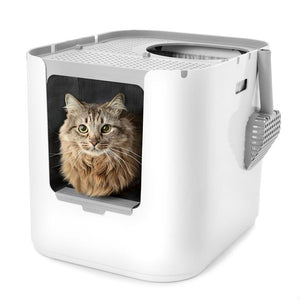
"It looks nicer than any other hooded or open option we considered."

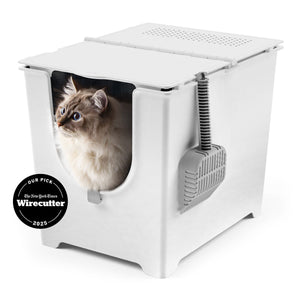
"This litter box keeps everything in, nothing gets out the sides."
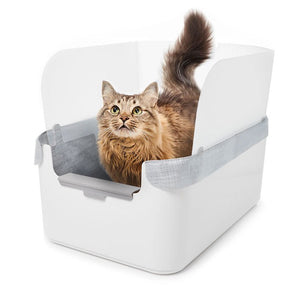
"My beautiful ragdoll cat and I both love the new Modkat Litter tray!"

